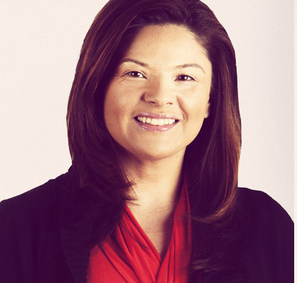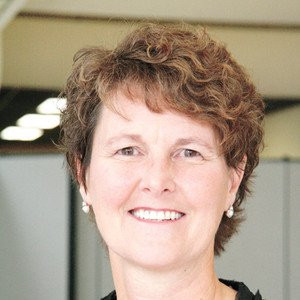It’s All About Education: Student Engagement Leads to Success
Wednesday, October 08, 2014
Last year, Google’s Senior Vice President of People Operations Laszlo Bock told the New York Times that, "GPA's are worthless as a criteria for hiring, and test scores are worthless." In fact, Google no longer asks applicants for transcripts, GPAs, or test scores because they have found that they are not a good predictor of success in the work place. This dramatic statement – from a company that receives more than two million job applications every year – is actually echoed by school superintendents across the nation, only 5% of whom believe that high school GPAs predict college success and only 6% of whom believe that SATs or ACTs are a good predictor of college success. Yet we continue to evaluate students primarily through grades or testing results, even though research shows that neither is correlated with success in life.
Think about the most successful people you know. They almost always have these things in common: they do something they are good at and they are highly engaged in what they do. They are probably also creative problem solvers (although this may vary, depending on their field). A strong mentoring relationship also contributes to success: over 75% of executives at Fortune 500 companies had or have a mentor, and 71% of Fortune 500 companies have formal mentoring programs. So, if we want to help ensure that students are successful in life, we want to enable them to pursue their own interests, be highly engaged in their academics, and have a strong mentoring relationship with at least one or two of their teachers.
Our current school system seems to be in opposition to this. According to a recent poll of over 600,000 American students in grades 5 - 12, student engagement in school drops dramatically as they get older. Part of the reason for this drop in engagement is that students are not encouraged to pursue their own interests and strengths; rather, we force all students to take the same classes and follow the same path. Another reason for this disengagement relates to the school administration and faculty. Students who strongly agreed with the two statements “My school is committed to building the strengths of each student” and “I have at least one teacher who makes me excited about the future” were more than 30 times more likely to be engaged at school. Not surprisingly, student engagement is directly related to academic performance.
GET THE LATEST BREAKING NEWS HERE -- SIGN UP FOR GOLOCAL FREE DAILY EBLASTHow can we restructure schools to address these issues? We can begin by implementing a plan in which students identify their own strengths and interests (with the help of a teacher or adviser). As each student progresses through school, he should work with caring teachers to develop a course of study that plays upon his strengths and allows him to pursue academic goals related to those strengths and interests. Does this mean that a mathematically-inclined student will not have to read literature and write essays? Of course not. However, he may take different classes than those students who are aspiring writers. This model of education is not remedial; it doesn’t purport to fix the shortcomings of students, but rather to develop their strengths and increase their level of engagement.
We also need teachers who are caring mentors for their students. As NY Times columnist Charles Blow said, “If we want better educational outcomes, we need to attract better teachers — and work to retain them. A good place to start is with respect and paychecks.” I’ve addressed this in a previous column, but it bears repeating. A talented, caring teacher who is committed to the profession and to the students can make a huge difference in a child’s school experience and his or her level of engagement.
Finally, we can place less emphasis on testing and more emphasis on project-based problem solving skills and real world experiences. In poll results released this month, only 31% of Americans believe that our high school graduates are ready for college. And 84% of those same respondents believe that “working on a real world project that takes at least six months to complete” is either very important or somewhat important for high school graduates to get a good job. We need to provide opportunities for students to tackle real problems, in subjects that interest them and in which they have demonstrated strengths, both in school and through internships.
We all thrive in environments where our strengths and talents are recognized, where we feel cared for, and where we feel challenged – whether we are six years old or sixty years old. Schools can be places like that, preparing our students for a lifetime of learning and achievement. But our educational institutions do not provide that environment as they are now. As Brandon Busteed wrote in Education Week, “if we want to build engaged schools, we need to put ownership of the teaching and learning process back in the hands of teachers and students.” Let’s stop pretending that testing is the answer, and instead start creating school environments that lead to lifetime success.
Lauri Lee is an independent consultant with over twenty years of experience in both public and private education, with learners from infants through adults. With experience in marketing, communications, social media, development, admissions, and technology, she is able to synthesize many of the issues facing our educational system today. She lives in Providence with her family, a big dog, and a small cat. She encourages you to connect with her onTwitter@fridovichlee or to contact her directly at [email protected].
Related Slideshow: RI Experts on the Biggest Issues Facing Public Education
On Friday November 22, the Hassenfeld Institute for Public Leadership at Bryant University, the Latino Policy Institute of Roger Williams University, the Rhode Island Association of School Committees, the Providence Student Union, and RI-CAN: Rhode Island Campaign for Achievement Now will host Rhode Island leaders in the public and nonprofit sectors for a symposium on "the civil rights issue of the 21st century, adequacy and equity and the State of Education in Rhode Island."
Weighing in on the the "three biggest factors" facing education in the state today are symposium participatnts Gary Sasse, Founding Director of the Hassenfeld Institute for Leadership; Christine Lopes Metcalfe, Executive Director of RI-CAN; Anna Cano-Morales, Chairwoman of the Board of Trustees, Central Falls Public Schools and Director, Latino Policy Institute at Roger Williams University; Tim Duffy, Executive Director, RI Association of School Committees; and Deborah Cylke, Superintendent of Pawtucket Public Schools.
Related Articles
- It’s All About Education: Can Recess Help Children Be More Successful?
- It’s All About Education: Could Text Messaging Make Us Better Parents?
- It’s All About Education: Pediatricians’ Group Finally Jumps on Early Literacy Bandwagon
- It’s All About Education: Do You Trust Your Child’s Teacher?
- It’s All About Education: It’s About Time
- It’s All About Education: Chronic Absenteeism’s Effect on Learning
- It’s All About Education: Is it Time for a Slow Education Movement?
- It’s All About Education: The Connection Between Housing and Achievement














